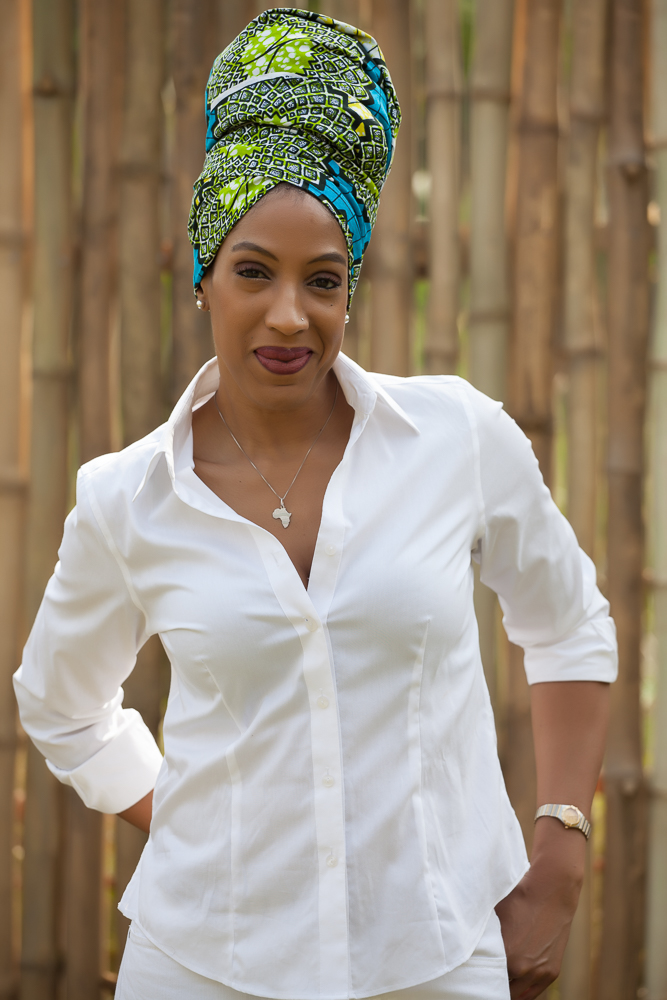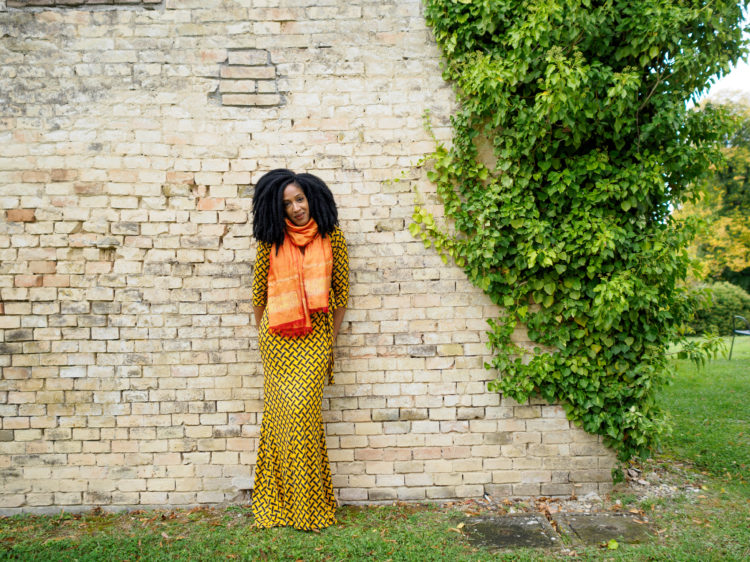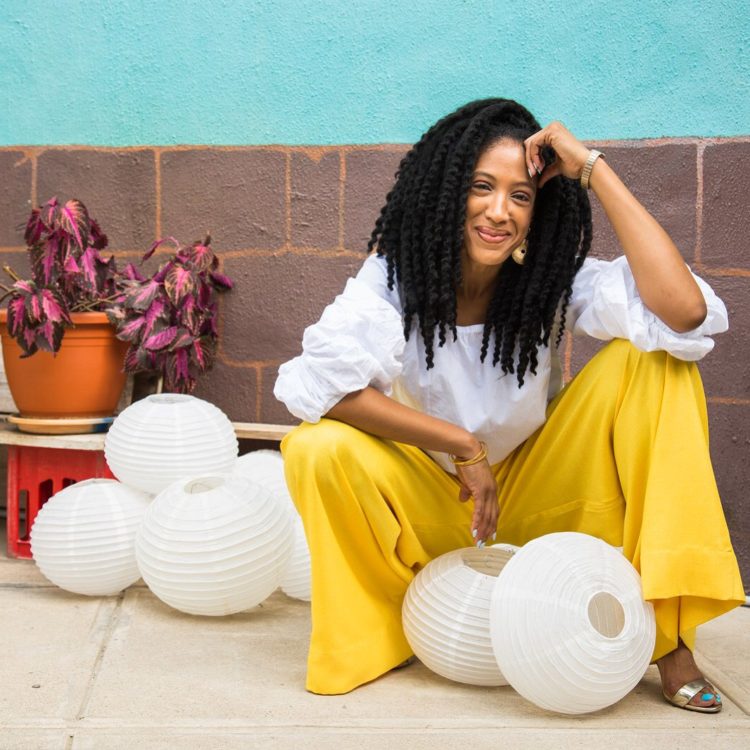For our final 2020 article, we decided to close out this most difficult of years with an interview of Enuma Okoro. An award-winning Nigerian-American author, Okoro is one of those changemakers who are helping to answer questions surrounding identity, faith and self-esteem. Currently at work on a novel, Okoro has published four books of nonfiction. I first met Enuma Okoro in Marrakech, Morocco, two years ago, and we have become close friends. (I can never thank Sabine Cessou enough for that introduction.) Some of our conversations have been about finding hope after emotional disturbance.
If, as we hope, 2021 turns out to be a year of rebirth for many, we suspect Okoro’s published work will help her readers—and TRUE Africa readers—find wholeness and healing after the challenges related to the coronavirus pandemic. As a public speaker, she has a way of putting hard truths out in the open, having stated in the past that “stories are the central way of shaping human perspectives, beliefs and behavior.” As many of us struggle to release old stories that we have been holding back, Okoro’s words may just help some of us make changes in the way we perceive ourselves (and others) in a transformed world.

Why did you decide to become a writer?
I think the real question might be, “when did I decide to own my vocation?” Writing is how I’ve always tried to make sense of things. But that was prefaced with a love of reading. I’ve been enchanted with words since I figured out what they were, these puzzle pieces that could be moved about in endless configurations to evoke an unimaginable range of thought or feeling, in both the one who creates and the one who receives.
Once I knew how to do it, to parse sentences, that is, writing was a natural and consistent pastime of mine as a child. Yes, I loved stories, as most children do, but I also just loved words. As a child I used to sit in my room and flip through the dictionary, reading random pages of words in a sitting. The book was like a treasure chest, and there was always this feeling of awe when I came across a word I’d never seen or heard before, or even more so, a word that I loved the sound of.
Then around the time I was becoming a teenager I was reading books like “All Quiet on the Western Front,” by Erich Maria Remarque, and “The Outsiders,” by S.E. Hinton. I was so deeply affected by those novels, by the content but also by their capacity to move me so emotionally. I would write poems in response to these readings. I think I’ve always understood writing as my way of sitting before the world and trying my darnedest to understand it in bits and fragments, as well as figuring out what I most wanted to say back to it.
I have always written. It just took me a while to realize it was something I could do for a living. It had just always felt too intimate, and lavish a behavior to share, until I realized that whenever I was doing anything else required of me, be it schoolwork and then later, professional work, all I wanted to do was get back to my reading and writing. So to finally answer your question, I never decided to be a writer, I just couldn’t ever escape it.

After living in Nigeria, why did you decide to move back to America?
Well, I’m not sure I’d say I’ve moved back to America. When I left Nigeria, I was country hopping for a bit, landing several times in Italy for extended stays. The pandemic has kept me grounded in America for the past year, but I’m not fully sure yet how and if America will be a long-term home for me. I am Nigerian, yet America is the country of my birth, and I know it well. But there are many ways in which me and America have always just been an ill-fitting pair. There isn’t a natural affinity.
I went to Nigeria because after having been born abroad and raised in three different countries I wanted to experience living as an adult in my country of origin. Being in Nigeria was both an incredibly beautiful and challenging experience for which I remain so grateful. It stretched me in life changing ways and my eyes were opened in ways I couldn’t have foreseen. But after several years, I left because, remaining there was no longer alignment with the ways in which I desired to continue growing professionally and personally.
What is the best book you read this year, and why?
Oh goodness, that is an extremely difficult question! I read so widely in different genres and categories. So several books affected me for completely different reasons. Some books taught me things I needed to learn for my own professional growth. Other books expanded my interior life, and some books just amused me and helped me escape for a bit the deep difficulties of this pandemic year.
But three that come to mind are Toni Morrison’s “The Source of Self-Regard,” because wow…that woman’s mind was something else. Her command of language and storytelling yes, but her essays reveal the way her mind worked, how she put pieces together when considering her stories and the “why” behind her stories. I was moved to tears of awe and appreciation so many times while reading that book.
The second one has a bit of a preface. Many years ago, I read “Lottery Tickets,” an essay in The New Yorker, by the poet and scholar, Elizabeth Alexander. It was about the sudden loss of her husband, the artist and restaurateur, Ficre Ghebreyesus. It was such a powerful piece that for years afterwards I would recommend it to almost everyone I could. You know how you read something spectacular and you just want everyone to read it? Well, that was me with this essay.
But anyway, this past February, right before the pandemic hit, it turned out that both Ms. Alexander and I were speaking at the same conference in Johannesburg, SA. I had never met her before but I approached her because I had to tell her how much that essay had affected me. She reached into her purse and whipped out the last copy of her memoir, “The Light of the World,” and gave it to me, saying, “you must be the one who’s meant to have this.” It was such an unexpected and beautiful moment for me.
In any case, I got back to New York and everything hit and I didn’t end up picking up the book again until months into the global lockdown. When things started feeling especially challenging emotionally for me, I started reading it in bed at night, just before turning off the lights. Slowly making my way through the pages of her story, that was simultaneously about grieving an unimaginable death and celebrating an unimaginable love, was like a balm I didn’t even know I needed.
It’s such a tender book about the gift of human love and human fragility, and it gave me this holding space to express my own uncharted grief about all that was happening in the world and in my little corner of it, while also encouraging me to remember to hold space for the daily and minute expressions of love and life that still persisted.
And the third book “The Dance of the Dissident Daughter,” by Sue Monk Kidd. She’s the author most known for her novel, “The Secret Life of Bees.” But this book was nonfiction, and it was this thoughtful intimate story of a woman’s soul awakening, while also being this very interesting historical and theological reflection of how patriarchal systems have pulled the curtains on a divine feminine focused spirituality.
What is your number one New Year’s resolution?
I actually don’t make New Year’s resolutions. Of course I have professional goals and intentions I’m keen on realizing, and there’s a certain emotional intelligence I try to lean into as I continue to learn about human nature and behavior, mine and others. But, in regards to my life overall, I sort of just place my hand on my heart each morning and try to quietly remember the sort of person I hope to be in the world on any given day: kind, one that honors her intuition, and recognizes both her own agency, and her reliance on God, and someone that keeps her palms open to receive with gratitude and release with grace.

